Thousands march for same-sex marriage in New Delhi, India: ‘We are here to celebrate ourselves’
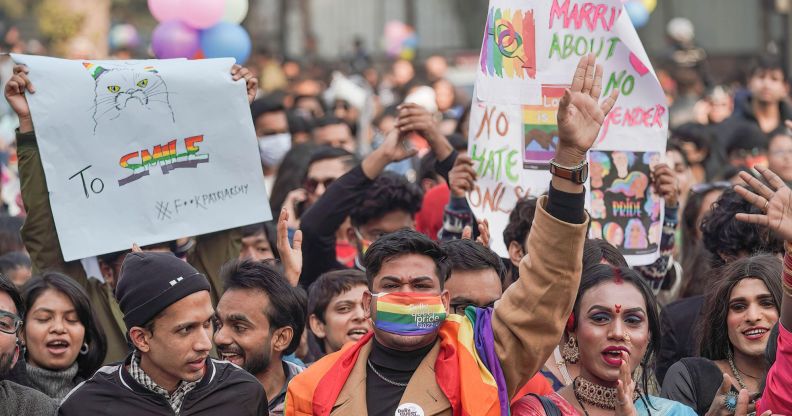
Members and supporters of LGBTQAI+ community take part in Delhi’s Queer Pride. (SOPA Images/LightRocket via Getty Images/Ayush Chopra)
Thousands of members of India’s LGBTQ+ community and allies have taken to New Delhi streets in protest of same-sex marriage rights.
On Sunday (8 January) more than 13,000 people came together to join the Delhi Queer Pride March after a three-year suspension due to the Covid pandemic.
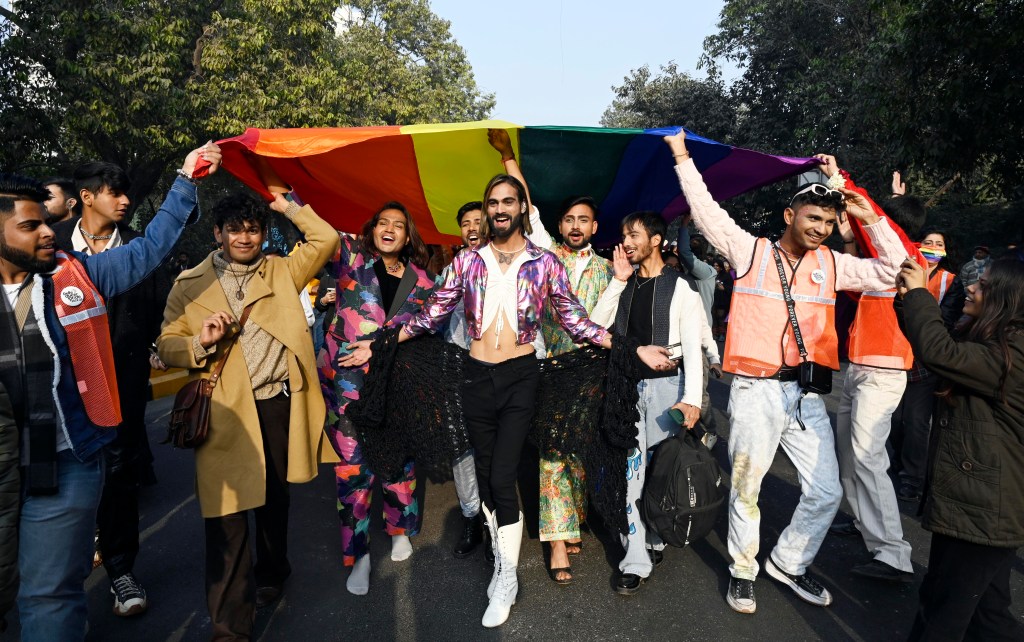
In their press for equal marriage rights, participants danced to drumbeats as they walked more than an hour to Jantar Mantar area near India’s parliament.
The protestors also carried rainbow flags, balloons and placards in a colourful display intended to get legal recognition to same-sex marriage – as the country inches closer to legalising it.
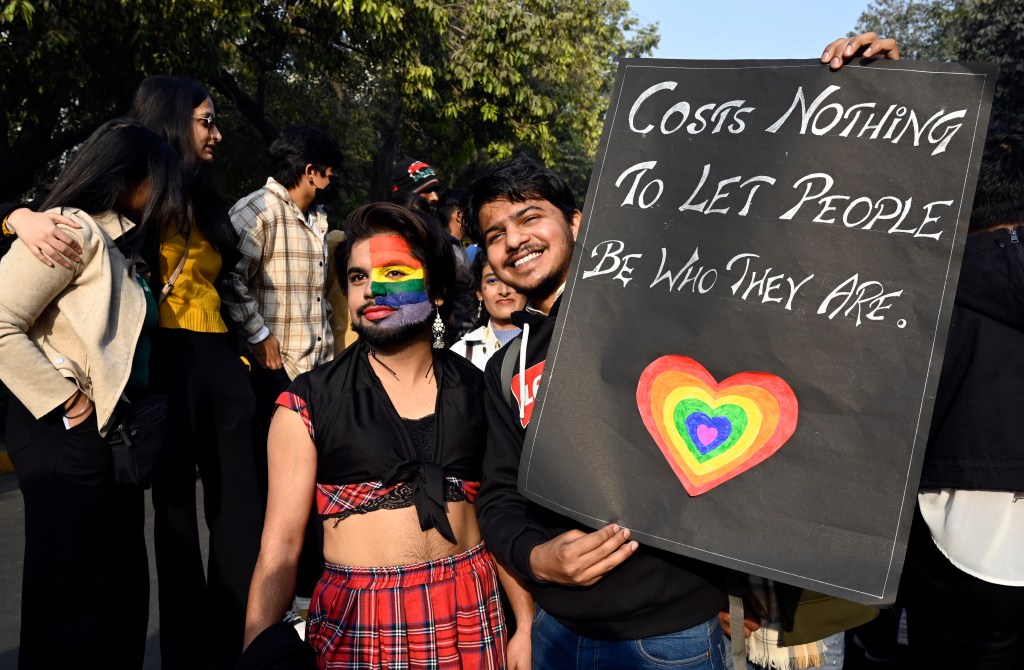
Vishal Rai, a 23-year-old who took part in the protest, told Associated Press: “It’s good, it’s fabulous. Because we are here to celebrate ourselves, and after three years.”
Noor Enayat, a volunteer at the parade, is hopeful for positive change in the near future.
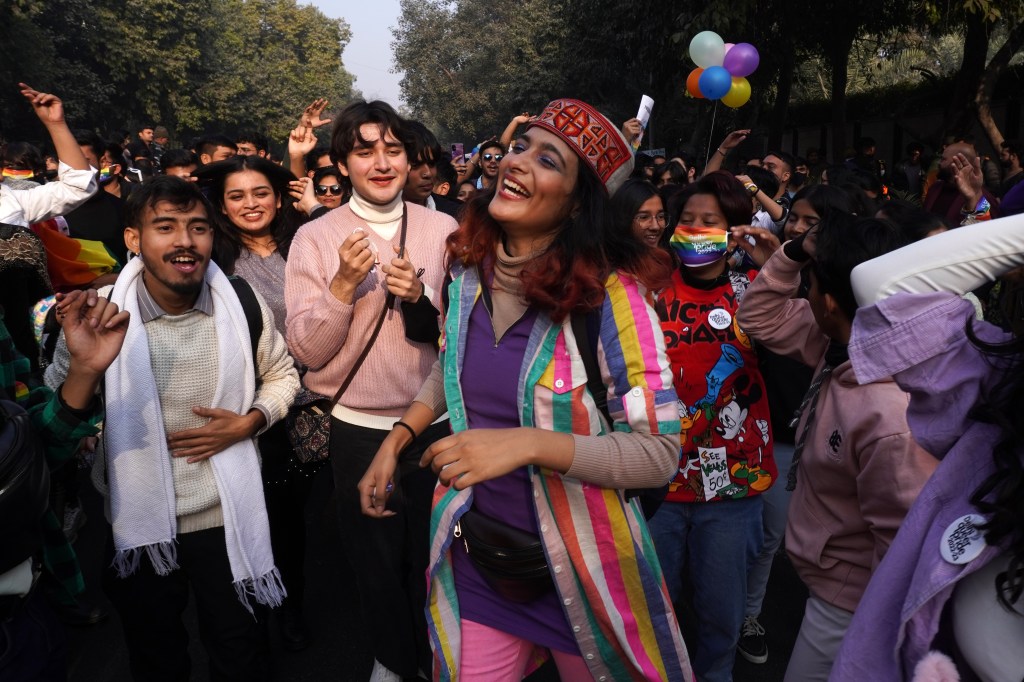
Enayat, who came out in 2003 has said two decades later things have improved.
“Give it another 20 years. It will be a very different world. So, I’m not going to be hopeless about it or say it’s not happening. It’s happening,” she said.
It follows the Indian Supreme Court hearing arguments in favour of equal marriage, as part of a set of petitions issued by two same-sex couples.
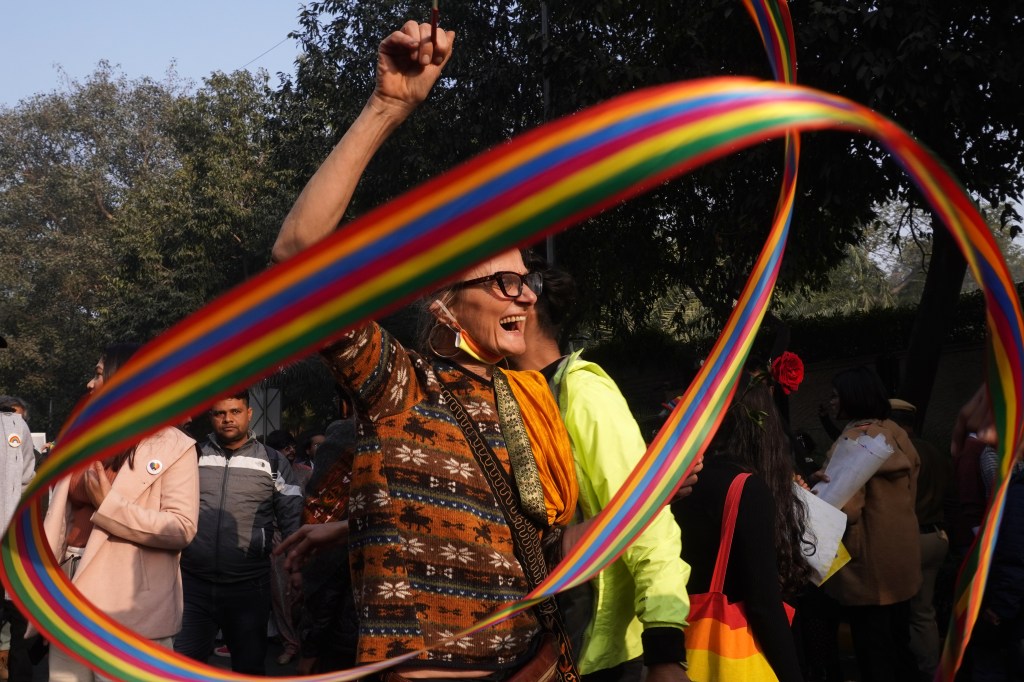
The lead petition, filed by gay couple Supriyo Chakraborty and Abhay Dange, has argued that denying LGBTQ+ citizens the right to marry is an affront to their right to equality.
Currently, India does not officially recognise same-sex marriage, but allows couples to engage in an “unregistered cohabitation”.
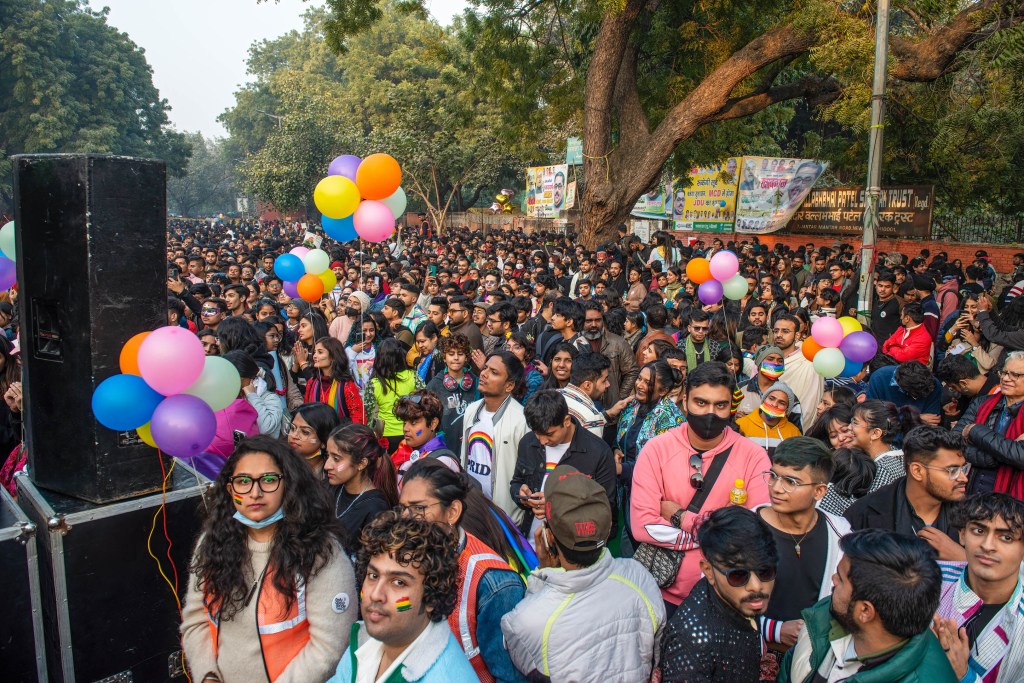
As the law currently stands same-sex couples in Indian aren’t legally permitted to inherit assets or adopt.
During a 2021 hearing, prime minister Narendra Modi’s government declared that same-sex couples in India “cannot claim a fundamental right for same-sex marriage”.
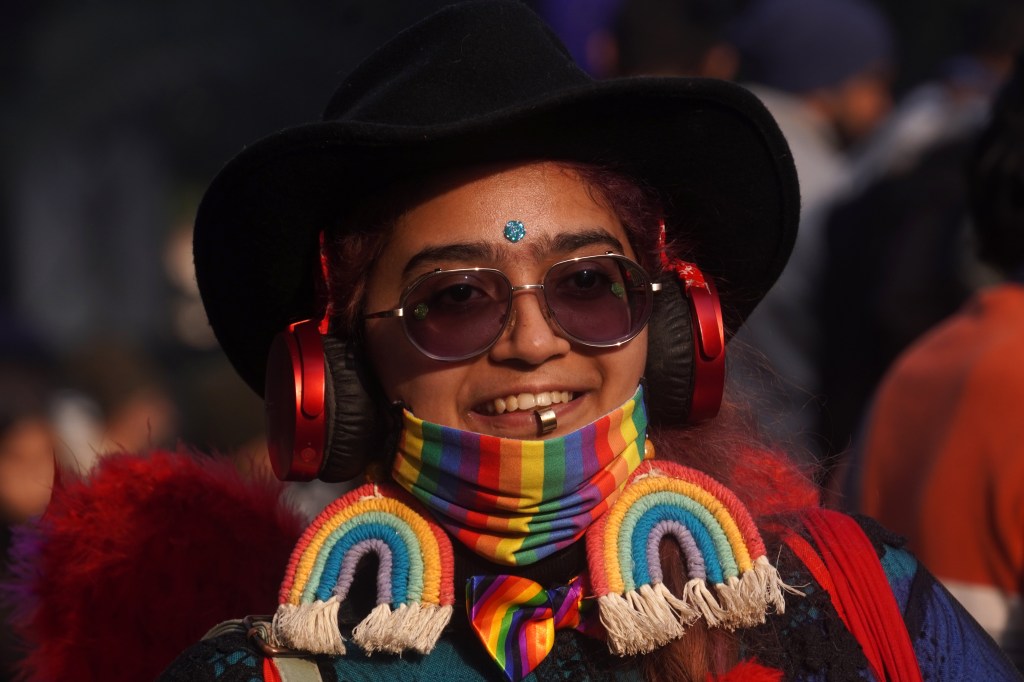
While the government’s position is unlikely to change, a shift in public perception toward LGBTQ+ couples could see a victory for petitioners in a similar fashion to the decriminalisation of same-sex relationships in 2018.
How did this story make you feel?

